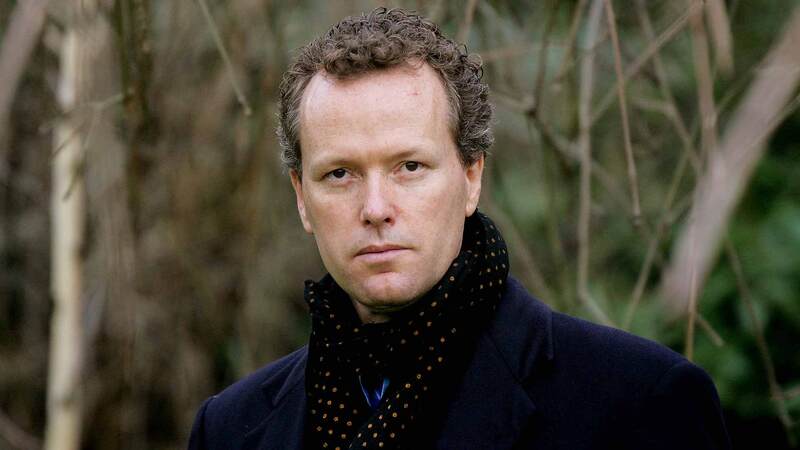You are viewing your 1 free article this month. Login to read more articles.
The English Patient crowned Golden Man Booker winner
The English Patient by Michael Ondaatje (Bloomsbury) has triumphed over competition from the likes of Hilary Mantel and George Saunders to be crowned the best Man Booker Prize winner of the last 50 years.
The “rare” novel which “gets under your skin” was published in 1992 and adapted for film starring Ralph Fiennes and Kristin Scott Thomas in 1996. It sees four dissimilar people thrown together at an abandoned Italian villa during the Italian Campaign of World War II where Hana, a nurse, tends to her sole remaining patient.
It was voted as the best Man Booker prize-wining novel of the last five decades after a month-long public vote and revealed at the close of a festival marking the success of the coveted literary prize in London’s Royal Festival Hall on Sunday (8th July), beating off competition from the other four titles named in the “Golden Five” shortlist revealed in May. In a Free State by V. S. Naipaul (Picador), had been crowned the best prize-winner of the 1970s, Moon Tiger by Penelope Lively (Penguin), named the best of the 1980s; Wolf Hall by Hilary Mantel (Fourth Estate), representing the best of the noughties and Lincoln in the Bardo by George Saunders (Bloomsbury), the most recent Man Booker winner, flying the flag for the decade from 2010 onwards. Robert McCrum, Lemn Sissay, Kamila Shamsie, Simon Mayo and Hollie McNish had judged the decade winners.
At the event to mark the Golden Man Booker winner on Sunday, an extract of the book was performed by actor Chiwetel Ejiofor, and Ondaatje was presented with a golden trophy.
Shamsie, who had selected Ondaatje’s novel to win for the 1990s, said: “The English Patient is that rare novel which gets under your skin and insists you return to it time and again, always yielding a new surprise or delight. It moves seamlessly between the epic and the intimate – one moment you’re in looking at the vast sweep of the desert and the next moment watching a nurse place a piece of plum in a patient’s mouth.
“That movement is mirrored in the way your thoughts, while reading it, move between large themes – war, loyalty, love – to tiny shifts in the relationships between characters. It’s intricately (and rewardingly) structured, beautifully written, with great humanity written into every page.”
Baroness Helena Kennedy, chair of the Booker Prize Foundation, agreed The English Patient was a “worthy” winner of the Golden Man Booker. “It’s a testament to the impact and legacy of the Man Booker Prize that all of the winning books are still in print,” she said. “I’m confident that this special book, chosen by the public, will continue to stand the test of time and delight new readers for many more years to come.”
The novel has sold 91,262 copies for £586,276 since BookScan records began in 1998, but will have sold many more in the five years before after it was published in 1993.
Ondaatje is a Sri Lankan-born Canadian poet, fiction writer, essayist, novelist and filmmaker. His latest novel, Warlight, has just been published by Jonathan Cape.
Publishers and past winners of the prize joined the Duchess of Cornwall at a reception at Buckingham Palace to celebrate 50 years of the Man Booker Prize on Thursday night (5th July).
At the event Luke Ellis, c.e.o. of Man Group, acknowledged the contributions to the prize of past literary director Ion Trewin and Dotti Irving, who runs PR company Four Colman Getty. He also defended the still controversial move to allow US authors to compete for the award. "The extending of the prize to include all novels written in English and the establishment of the Man Booker International Prize are merely recognition of something we all know – that great ideas don’t respect boundaries, that real excellence wants to perform on the widest stage possible," he said.
However, at the Southbank Centre event last night (8th July), past winners Peter Carey and Julian Barnes continued to question the wisdom of allowing US authors to enter the prize.
Australian author Carey, who won the prize in 1988 for Oscar and Lucinda and in 2001 for True History of the Kelly Gang, said the move was an “exercise in global corporate branding”, according to the Guardian. “I am sure that American prizes don’t give a stuff about Australians or New Zealanders or Canadians, or any of those voices. An English prize does because there is still a family connection, a cultural connection that really does mean something,” he said. “And if you want to think about big American prizes, it is laughable to think the Pulitzer prize would want to bring English and Australian writers in – never in a million years would it happen. And inviting American writers, good American writers, changes its nature. It becomes an exercise in global corporate branding.”
Meanwhile Barnes, who won the award in 2011 for The Sense of an Ending, added: “I thought it was daft when it was announced and I think it is daft still.”
The Golden Man Booker Prize is being supported by retail chains, bookshops and libraries across the UK, with point of sale material, displays, newsletters, staff picks, competitions and social media campaigns.



















